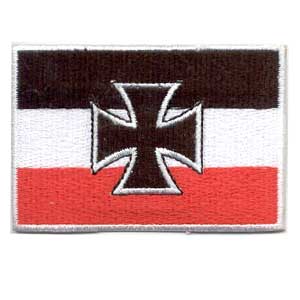German U-Boats, arguably the most deadly naval weapon of World War I, were
completely outlawed by the Treaty of Versailles' provisions.
The dramatic shifts in governmental structure that Germany faced in the wake of World War I were very damaging to the identity of Germany as a whole. It is very difficult to formulate a cultural identity when the very law and structure of your society is changing as much as Germany's did in the 1920's. Almost immediately after the abolition of the empire and the beginning of the Weimar Republic, political unrest became a common occurrence in Germany. This made it hard to maintain a cultural identity, as the people had to live in constant fear that everything could suddenly change. Also, international perception of Germany was being damaged because of this. Many, particularly the French, believed that Germany was not capable of handling complete sovereignty responsibly, and this political unrest only strengthened this perception. This unrest made it very difficult for Germans to have a positive standing within the international community. While the Weimar Republic was very ineffective, there was no way for the Germans to end the republic without looking bad. It was a winless situation for them, and coupled with the economic strain that the country was experiencing, this made Germany's sense of national pride greatly suffer.
Propaganda for the Freikorps, a German paramilitary group who was one of the first
to attempt to overthrow the Weimar Republic.
Economic hardship also ran rampant in Germany after World War I, and this also contributed to Germany's identity crisis. When much of German culture has been influenced by food and beer, and these things become harder to come by due to economic strain, it is easy to understand how this was a major stalling point in the development of a distinct culture in Germany. Simple items like bread and butter became nearly impossible to purchase due to their exorbitant price increase. The hyperinflation that occurred across Germany not only made daily life more difficult, but Germany even had to default on reparation payments due to the devaluation of their currency. This in turn led to French and Belgian occupation of several mining territories in Germany, which further crippled the economic situation, and led to more political unrest.
The issues resulting from World War I's ending and aftermath crippled Germany for over a decade. The struggles the country faced to reinvent itself politically and economically only compounded throughout the years, and led to one of the darkest regimes that has ever existed. While all of this chaos was occurring, Germans struggled to maintain national pride and a sense of cultural identity, as a struggle to make ends meet took precedence, on both the individual and national level. By the time the Nazi regime took command, Germans were willing to attach to anything that would make their situation improve. The penalties the Treaty of Versailles placed on Germany were possibly the worst a country has ever been handed, and this had a very negative effect on a country already struggling to form an identity.
Word Count: 688
The issues resulting from World War I's ending and aftermath crippled Germany for over a decade. The struggles the country faced to reinvent itself politically and economically only compounded throughout the years, and led to one of the darkest regimes that has ever existed. While all of this chaos was occurring, Germans struggled to maintain national pride and a sense of cultural identity, as a struggle to make ends meet took precedence, on both the individual and national level. By the time the Nazi regime took command, Germans were willing to attach to anything that would make their situation improve. The penalties the Treaty of Versailles placed on Germany were possibly the worst a country has ever been handed, and this had a very negative effect on a country already struggling to form an identity.
Word Count: 688


